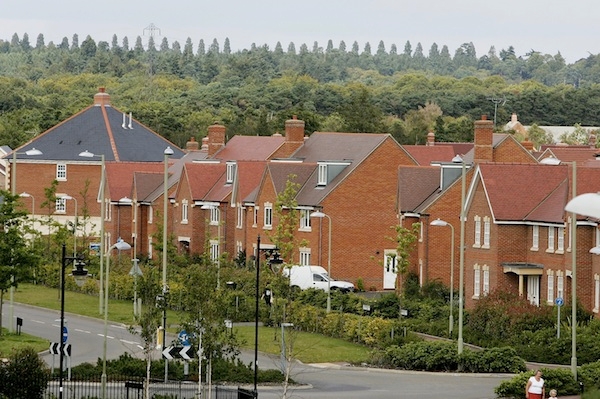Ed Milliband appears to have woken up this week – too late – to a housing crisis. He echoes his predecessors, who promised too little, too late and failed to deliver. Their lack of ambition will continue to fail the generation who couldn’t buy before the boom. As the IFS reports that even those born in the 60s and 70s are going to be worse off than the post-war generation, it’s no wonder that those in their 20s and 30s are angry.
At the launch of his housing commission this week, Mr Milliband set out five ideas to meet Labour’s headline pledge of 200,000 homes. This is not enough and they know it. Their failed legacy means that the generation who were too young or poor to buy before the turn of the century will see greater divisions between themselves than ever before. Every piece of progressive policy we fight for will be undone by the housing market – if you have parents who can afford to stump up a deposit until you eventually buy an overpriced home somewhere in your mid thirties, you’ll just about be OK. If not, you will continue to struggle in an unstable and poorly regulated private rented sector while social housing remains accessible only to the acutely vulnerable.
It is shocking that the Lib Dems have a better record on affordable housing in three years, as a minority in a coalition government, than either the Tory or Labour parties has had for the last three generations. The Coalition will be the first government for over 30 years to deliver a net increase in the social housing stock. Because of Lib Dems in Government, we are requiring every home sold under Right to Buy to be replaced on a one-for-one basis to keep supply on the agenda and have given councils new powers to borrow to build. In contrast, Labour built fewer social homes in 13 years than we built in the last three.
Even in the boom years, the Labour party did not understand housing. The words of Blair’s second housing minister are illustrative: The one thing which we hadn’t anticipated was the very rapid increase in housing shortage,’ Raynsford admits. ‘We knew there was a shortage in the south east but it wasn’t an overall shortage. Hindsight is a wonderful thing”. They missed a golden opportunity to build Britain for the future. As a result, the party that claims to be for social justice presided over the biggest social injustice of our time – the gulf between homeowners of the 20th century and the 21st century dispossessed.
I don’t want to pitch the rich against the poor and the young against the old – the politics of division is what got us into this mess in the first place. But we do need to recognise how we got where we are in housing and why it matters for everyone, whatever age they are. We need a new consensus that all of society is better off when politicians at all levels begin with a bit of honesty.
So let’s be honest. Labour’s headline offer – 200,000 homes – is not enough. While estimates vary, 300,000 homes is more realistic estimate. That’s why the Lib Dems adopted this as party policy a year before Labour did. In effect, this means that Milliband is planning to preside over a continued housing crisis. Hindsight and foresight are two sides of the same coin and if Milliband wants to avoid Raynsford’s boldly admitted mistake, he needs to think more carefully about the future.
Secondly, Labour’s five big ideas. Some of these are not half bad. I can say that honestly because the Lib Dems have also called for and have acted on some of them: new settlements, greater use of use it or lose it powers, councils to have more freedom to borrow to build. Improved powers for councils to borrow to build, announced this month, were the direct result of Lib Dem pressure in coalition negotiations. Unfortunately we couldn’t persuade the Tories to move forward with new settlements.
Thirdly, the absence of any strong indication of where the money for these homes will come from is worrying. In order to build houses, you need four things: land, money, developers and political will. Labour have never delivered on political will, they have talked big on land and developers but they barely mention money. We need to be obsessively long termist to develop a housing market which will weather the storms of booms and busts, and I say this precisely because if we rely on political will to deliver government money, we will face another housing crisis in 20 years time. We should be looking at drawing in new forms of investment, for example from pension funds, to generate a sustainable way to finance homes for everybody, and letting councils pool their allowed borrowing to free up more cash.
The housing crisis of the 21st Century is a much stickier problem politically than in the post-war years, because the nature of the housing crisis has changed. Instead of highly visible slums and post-war destruction, we have a growing, aging population who will need homes, an increasing demand for single person households, and a backlog of undersupply.
Having to sacrifice political capital to meet the needs of future growth is not something I would rate either of the other parties highly on. But it’s something the Lib Dems consider key – we champion green issues because it matters for our children, we have (painfully) fought to reduce government debt because it is unsustainable, and we will continue fight to reduce a widening generational inequality in housing.
Tim Farron is president of the Liberal Democrats.






Comments